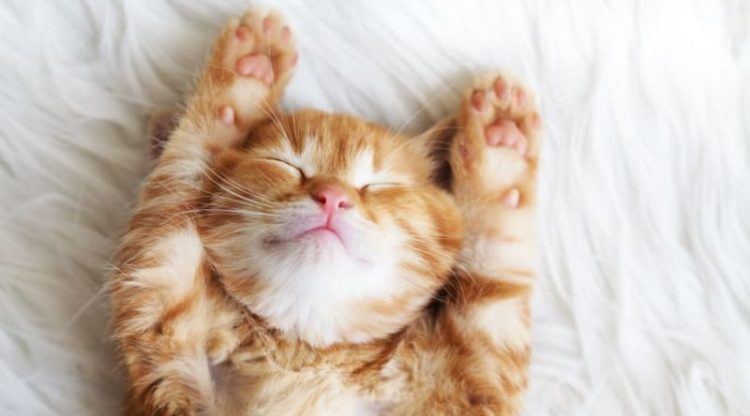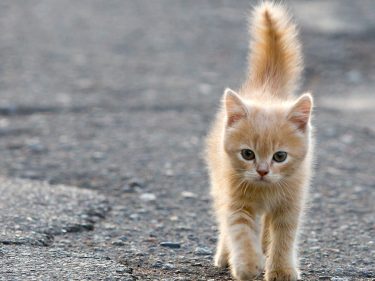June 26, 2023
How to help found kittens
 It’s kitten season!
It’s kitten season!
Of course, with a typical season running from April through October, it’s kitten season fully half of every year (and cats can become pregnant at any time, so really, it’s always kitten season). Unaltered female cats can become pregnant several times a year and on average have a litter of 3-5 kittens at a time.
So what to do if you find a litter of kittens outside, or if your cat has kittens? It’s natural to want to scoop them up and try to care for them yourself or take them to a shelter—but these choices may put the kitties in danger.
If you find a litter of kittens
Watch and wait! A kitten’s best chance of thriving is with its mother, who may be off looking for food for herself or scouting for a safer home for her litter. Give it a few hours (4-6) to see if the mother cat returns, making sure to give the kittens plenty of space. If you are too close, the mother cat may not approach. It may be helpful to leave and come back in a couple hours.
Check out this flowchart from Seattle Humane: Help! I found kittens!
If the mother cat does not return, contact your local animal shelter. If the kittens appear visibly sick or injured, seek medical help from your local animal shelter or veterinarian. In the greater Seattle area, contact Seattle Humane at pethelp@seattlehumane.org or 425-649-7566 for assistance.
If the mother cat returns and the area is relatively safe, leave the kittens alone with their mother until they appear to be weaned, around six to eight weeks of age. In the interim, you can offer shelter and food to the mother cat but keep the food at a reasonable distance from the litter of kittens—food attracts other cats and wild animals, which might pose a threat to her kittens.
 A kitten who is being cared for by its mom appears clean and dry. The belly is pink and plump, indicating they are well-fed and warm. This kitten’s mom may still be caring for them.
A kitten who is being cared for by its mom appears clean and dry. The belly is pink and plump, indicating they are well-fed and warm. This kitten’s mom may still be caring for them.
After the kittens have weaned, you can begin to care for and socialize with them, including taking them to your local shelter for vaccinations, deworming and any other care they may need. Use social media to locate owners of lost cats ( on Facebook, check out Lost Cats of King County and Cats of Seattle) or potential loving homes for the kittens before taking them to a shelter.
- Check out Kitten Lady’s Orphan Kittens: A Guide to Saving the Tiniest Felines
- Check out kitten socialization tips from Alley Cat Allies
Other ways to help
Foster a litter of kittens or pregnant cat. Shelters are often inundated with kittens and pregnant mother cats in the spring and summer months who need a temporary foster home to keep them safe and cared for.
- Foster for Seattle Humane (Bellevue)
- Foster for PAWS (Lynnwood)
- Foster at Homeward Pet (Woodinville)
- Foster at Seattle Animal Shelter (Seattle)
- Foster at the Humane Society of Pierce County (Tacoma)
Volunteer time to help a cat or kitten in need. All our local shelters have volunteer opportunities including cat care and cat enrichment.
Spay and neuter your pet(s). Make sure your cat(s) are spayed and neutered, especially if they spend time outside. This makes a significant impact to decrease the number of litters in the community!
Support local low-cost spay/neuter programs. Almost all communities offer programs to help people afford spay/neuter. You can visit SpayUSA.org and find a network of over 1,900 affordable programs and clinics nationwide.
Support local trap/neuter/return (TNR) programs. These programs help manage feral (or “community”) felines. Volunteers humanely trap these cats, who live together in what we call colonies, and bring them to a veterinary clinic where they are spayed/neutered, vaccinated for rabies, and “eartipped,” to indicate they are fixed. They are then returned to the colony. Check out Seattle’s Alley Cat Project for more information about local TNR programs.
 Contributed by Nicole Reeve-Parker, who loves all cats and kittens
Contributed by Nicole Reeve-Parker, who loves all cats and kittens